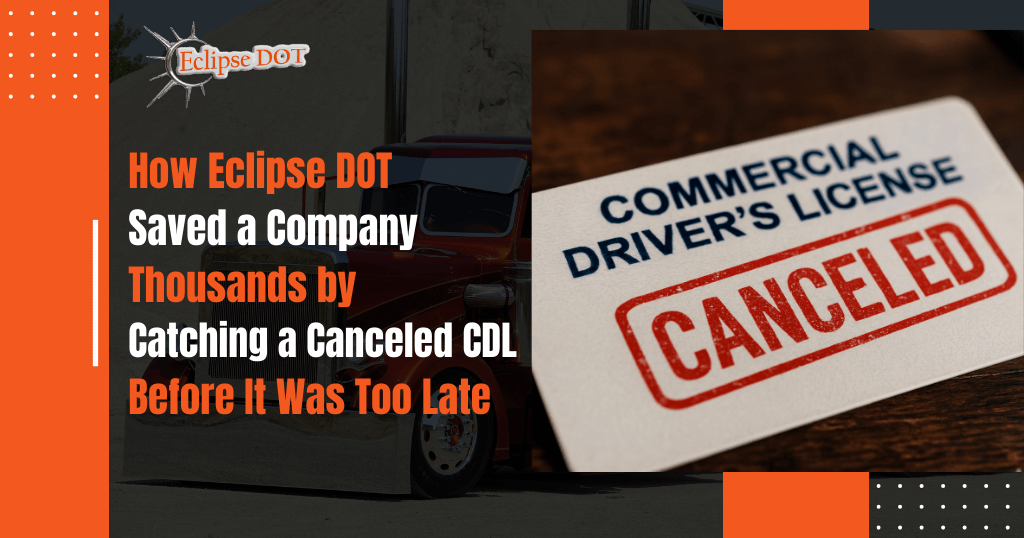The Impact of CSA and SMS on Fleet Safety: Tips and Best Practices
Hey there, fleet managers and safety enthusiasts! Dan Greer here, ready to dive into the nitty-gritty of how the Compliance, Safety, Accountability (CSA) program and the Safety Measurement System (SMS) impact your fleet’s safety and what you can do to stay ahead of the game.
In this article, we’ll explore the ins and outs of CSA and SMS, why they matter for your business, and some tips and best practices to keep your fleet running safely and smoothly. So, buckle up, and let’s hit the road to a safer, more compliant operation!
Understanding CSA and SMS: What You Need to Know
First things first—what exactly are CSA and SMS, and why should you care? The Compliance, Safety, Accountability (CSA) program is a Federal Motor Carrier Safety Administration (FMCSA) initiative designed to improve the overall safety of commercial motor vehicles (CMVs) on the road. It’s all about holding motor carriers and drivers accountable for their safety performance.
The Safety Measurement System (SMS) is a tool within the CSA program that measures a carrier’s safety performance based on data collected from roadside inspections, crash reports, and investigations. The SMS evaluates your fleet’s safety performance in seven Behavior Analysis and Safety Improvement Categories (BASICs):
- Unsafe Driving
- Crash Indicator
- Hours-of-Service (HOS) Compliance
- Vehicle Maintenance
- Controlled Substances/Alcohol
- Hazardous Materials Compliance
- Driver Fitness
Your SMS scores in these categories determine your overall CSA score, which can impact everything from your insurance rates to your ability to attract and retain drivers. A poor CSA score can lead to more frequent inspections, higher insurance premiums, and even intervention from the FMCSA.
Why CSA and SMS Matter for Your Fleet
Understanding and managing your CSA and SMS scores isn’t just a box to check—it’s critical to your fleet’s safety and success. Here’s why:
1. Safety and Liability
A high CSA score can signal to the FMCSA—and potential clients—that your fleet is at higher risk of accidents and violations. This not only increases your chances of roadside inspections but also exposes you to greater liability in the event of an accident.
2. Reputation and Business Opportunities
Your CSA score is public information, meaning potential clients, partners, and even drivers can see it. A poor score could hurt your reputation and make it harder to win new business or attract top-tier drivers. On the flip side, a strong score can set you apart as a leader in safety and reliability.
3. Cost Savings
Maintaining a good CSA score can lead to lower insurance premiums and fewer fines, saving your business money in the long run. Plus, fewer accidents mean less downtime and more productive, profitable operations.
Tips and Best Practices to Improve Your CSA and SMS Scores
Now that you know why CSA and SMS matter, let’s talk about what you can do to improve your scores and keep your fleet safe.
1. Prioritize Regular Vehicle Maintenance
One of the easiest ways to improve your SMS scores, particularly in the Vehicle Maintenance BASIC, is by keeping your vehicles in top condition. Implement a rigorous maintenance schedule, ensure all necessary repairs are made promptly, and keep detailed records of all inspections and repairs.
2. Implement Strong Driver Training Programs
Your drivers are the backbone of your fleet’s safety. Invest in regular training programs that cover everything from defensive driving techniques to proper logbook management and HOS compliance. Educated drivers are less likely to commit violations that could harm your CSA score.
3. Monitor and Address Unsafe Driving Behaviors
The Unsafe Driving BASIC is a critical component of your SMS score. Use telematics and other monitoring tools to track driver behavior, such as speeding, harsh braking, and lane changes. Address any unsafe behaviors with coaching and, if necessary, disciplinary action.
4. Stay On Top of HOS Compliance
HOS violations are a common issue that can significantly impact your CSA score. Ensure your drivers are fully trained on HOS regulations and are using Electronic Logging Devices (ELDs) to track their hours accurately. Regularly review logbooks and address any discrepancies immediately.
5. Conduct Regular Internal Audits
Don’t wait for the FMCSA to audit your fleet—conduct your own internal audits to identify and correct any compliance issues before they become a problem. This proactive approach can help you catch small issues before they turn into major violations.
6. Create a Culture of Safety
Ultimately, improving your CSA and SMS scores comes down to creating a culture of safety within your organization. Make safety a priority at every level, from top management to drivers. Encourage open communication about safety concerns, reward safe driving behaviors, and lead by example.
Partner with Eclipse DOT for Compliance Success
Managing your CSA and SMS scores can be challenging, but you don’t have to do it alone. At Eclipse DOT, we specialize in helping companies like yours navigate the complexities of DOT compliance. From training and audits to maintenance programs and safety consulting, we’re here to help you achieve and maintain top-tier CSA scores.
Stay Safe, Stay Compliant
Your CSA and SMS scores are more than just numbers—they’re a reflection of your commitment to safety and compliance. By following these tips and best practices, you can improve your scores, protect your reputation, and keep your fleet on the road and running smoothly.
Ready to take your fleet’s safety to the next level? Contact us today and let’s work together to keep your operation safe, compliant, and successful.
Gain exclusive access to our CDL & DOT Compliance articles with a trial at DOTDocs.com. And don’t forget to claim your FREE micro audit at THE ECLIPSE DOT MICRO AUDIT. Ready for seamless operations? Discover the difference today!






